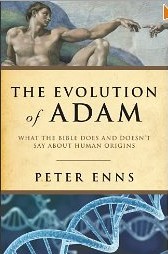 I remember as a freshman in college (1980) in our InterVarsity fellowship at Stanford we had discussions about evolution and creation. After a few years of discussing the topic in apologetic groups, I thought, “OK, we’ve solved that one. Time to move on.” I come from a science family. (Dad’s a gamma-ray astrophysicist.) Personally, I didn’t see a conflict. In the 1990’s when Christians I knew wanted to discuss creation/evolution, I naively thought, “How passé!”
I remember as a freshman in college (1980) in our InterVarsity fellowship at Stanford we had discussions about evolution and creation. After a few years of discussing the topic in apologetic groups, I thought, “OK, we’ve solved that one. Time to move on.” I come from a science family. (Dad’s a gamma-ray astrophysicist.) Personally, I didn’t see a conflict. In the 1990’s when Christians I knew wanted to discuss creation/evolution, I naively thought, “How passé!”
Well, apparently the problem isn’t solved. The debate continues, and there’s been a spate of new books recently addressing the issues of Genesis, science, creation and evolution.
John Walton, The Lost World of Genesis One: Ancient Cosmology and the Origins Debate (IVP, 2009).
Richard Carlson and Tremper Longman III, Science, Creation and the Bible: Reconciling Rival Theories of Origins (IVP, 2010).
C. John Collins, Did Adam and Eve Really Exist?: Who They Were and Why You Should Care (Crossway, 2011).
Into this mix, Peter Enns (recently hired by Eastern College to each Old Testament) adds his own contribution, cleverly titled, The Evolution of Adam: What the Bible Does and Doesn’t Say about Human Origins (Brazos, 2012).
In his introduction, Enns discusses the problem, focusing not generally on the issue of creation, but specifically on Adam, since Paul seems to understand Adam as an actual historical figure which he perceives to be in direct conflict with any evolutionary interpretion of human origins. Enns lays out four options to resolve the conflict:
1) Accept evolution and reject Christianity.
2) Accept Paul’s view of Adam as binding and reject evolution.
3) Reconcile evolution and Christianity by positing a first human pair at some point in the evolutionary process.
4) Rethink Genesis and Paul. (I suspect this is going to be the option he’s going to choose).
Enns thinks most Christians who, like me, don’t see a direct conflict follow some variation of option #3. He then informs us that his book will be divided in half. Part 1 looking at Genesis, and Part 2 looking at Paul.
While I will wait to access Enn’s overall theory (I plan to have 2 more blogs on Enns), I’m attracted to his approach of taking Paul more seriously than most of us OT types typically do. I have one preliminary question, How distinct will Enn’s perspective (#4) be from option #3)?
